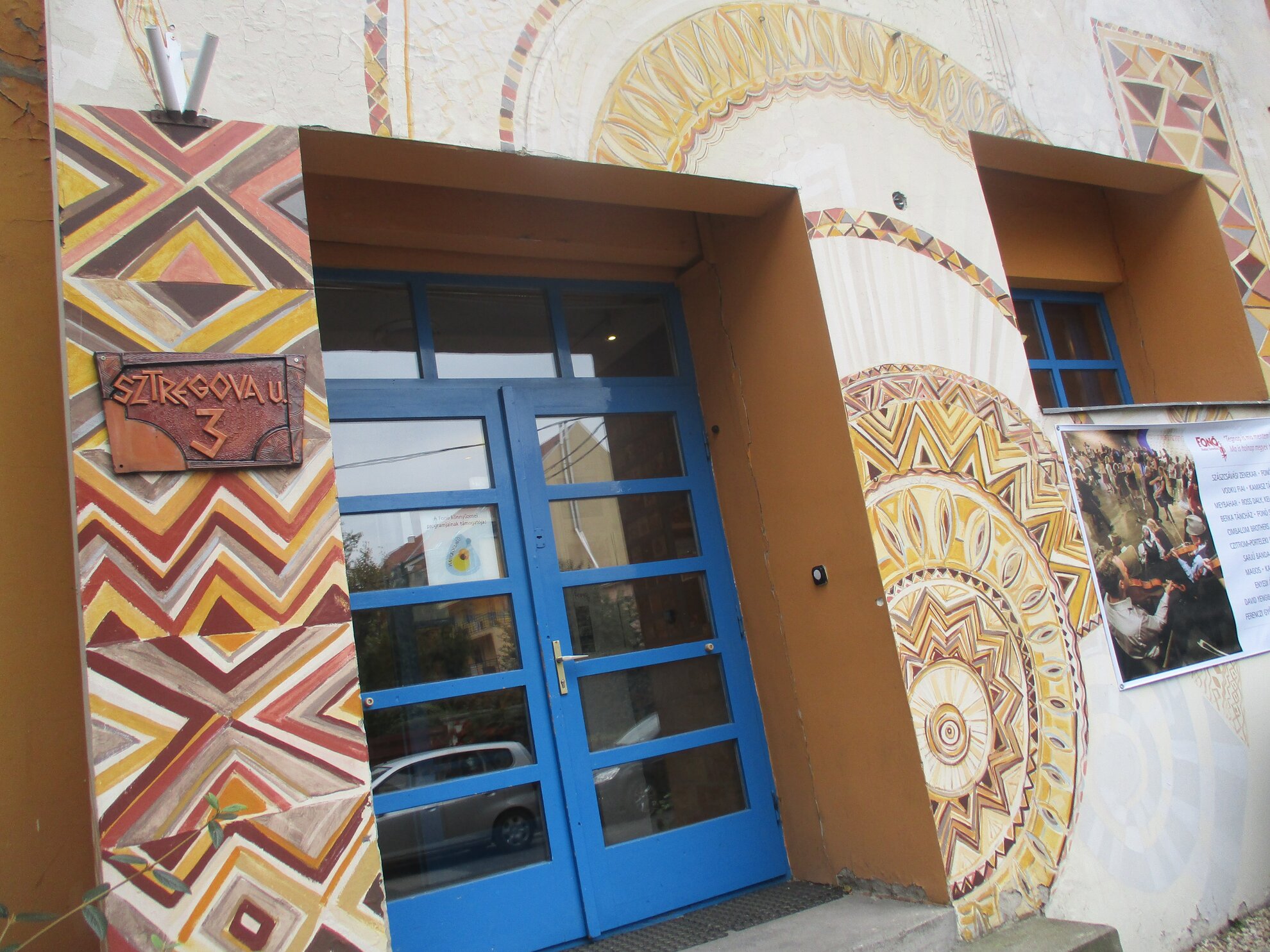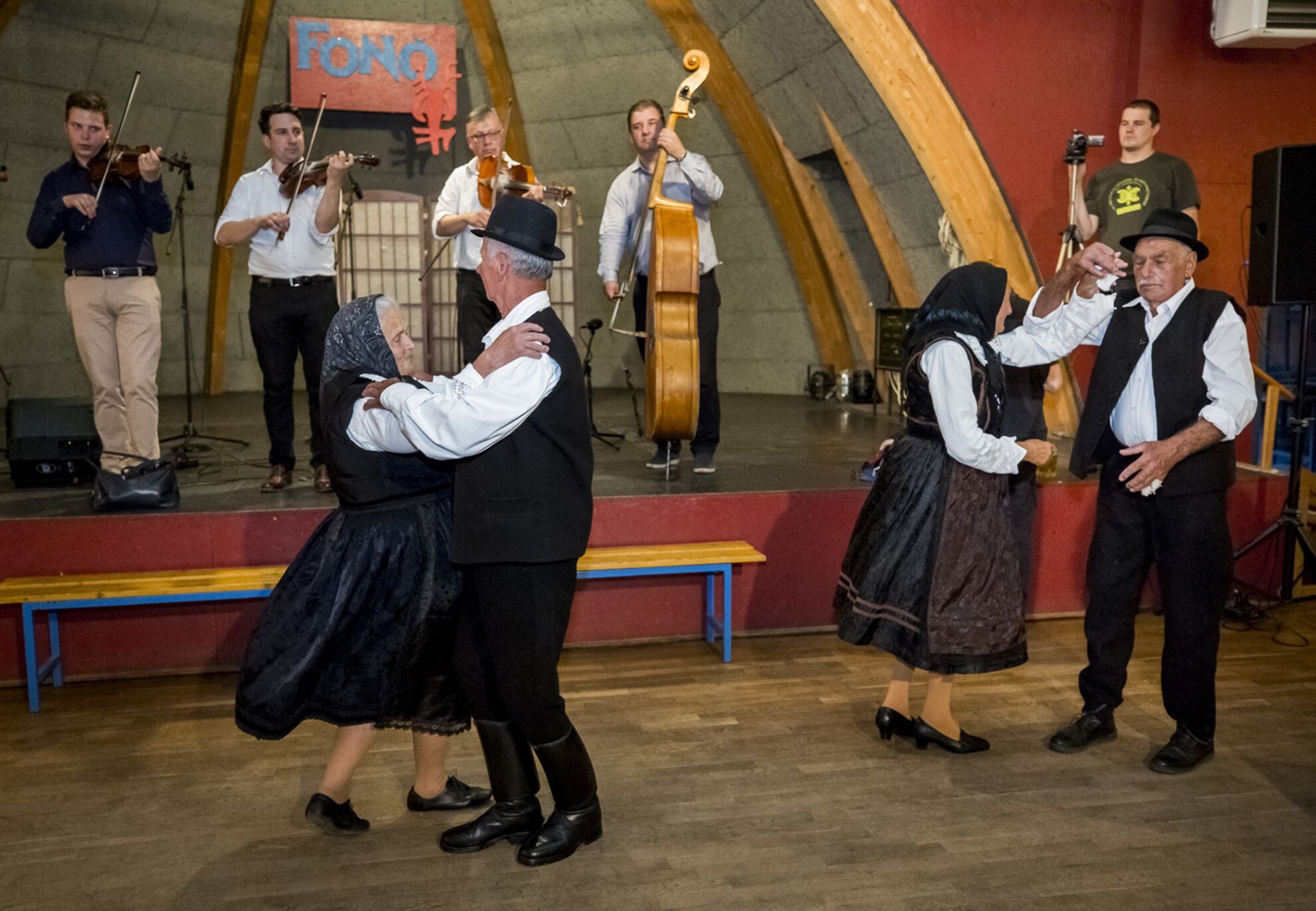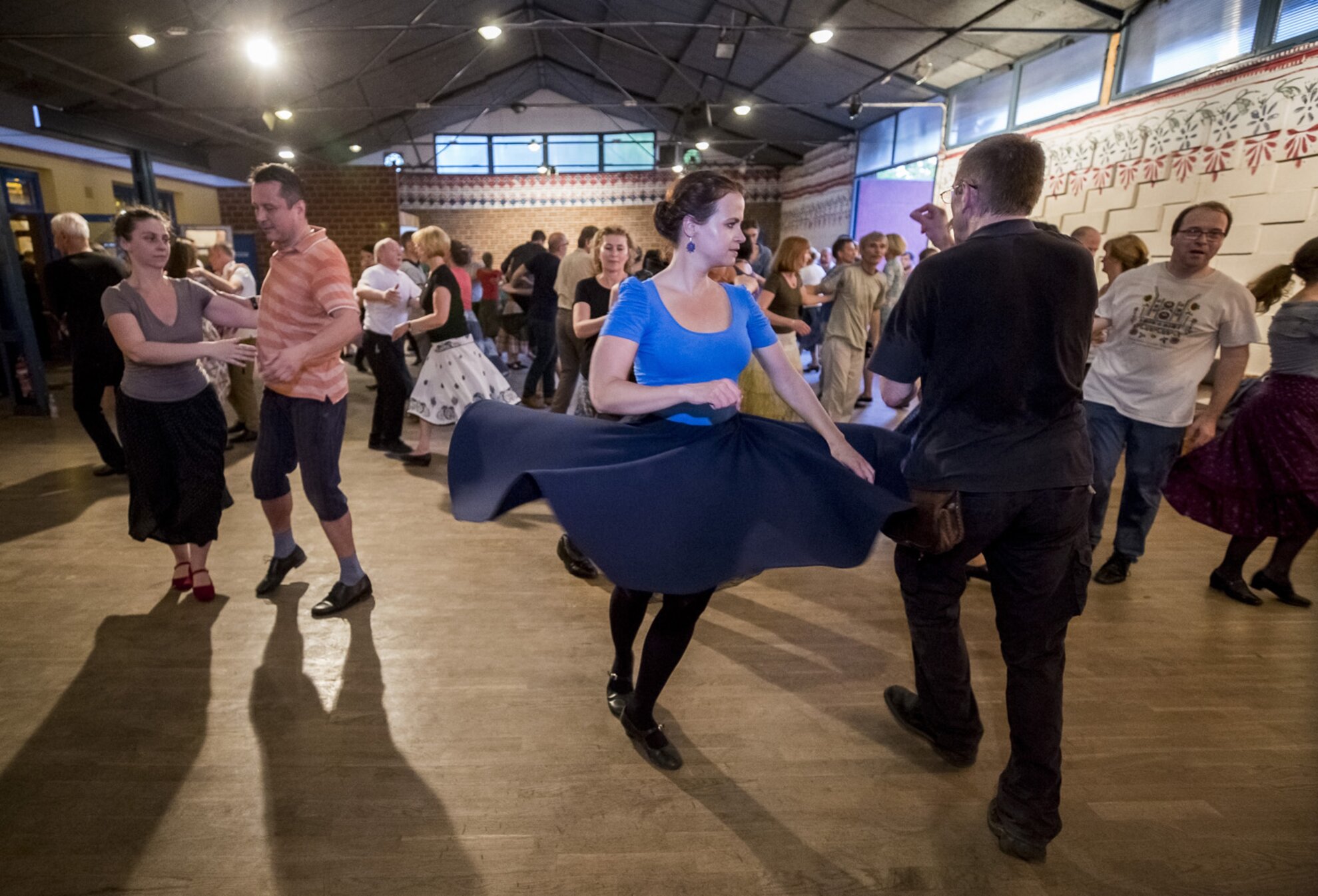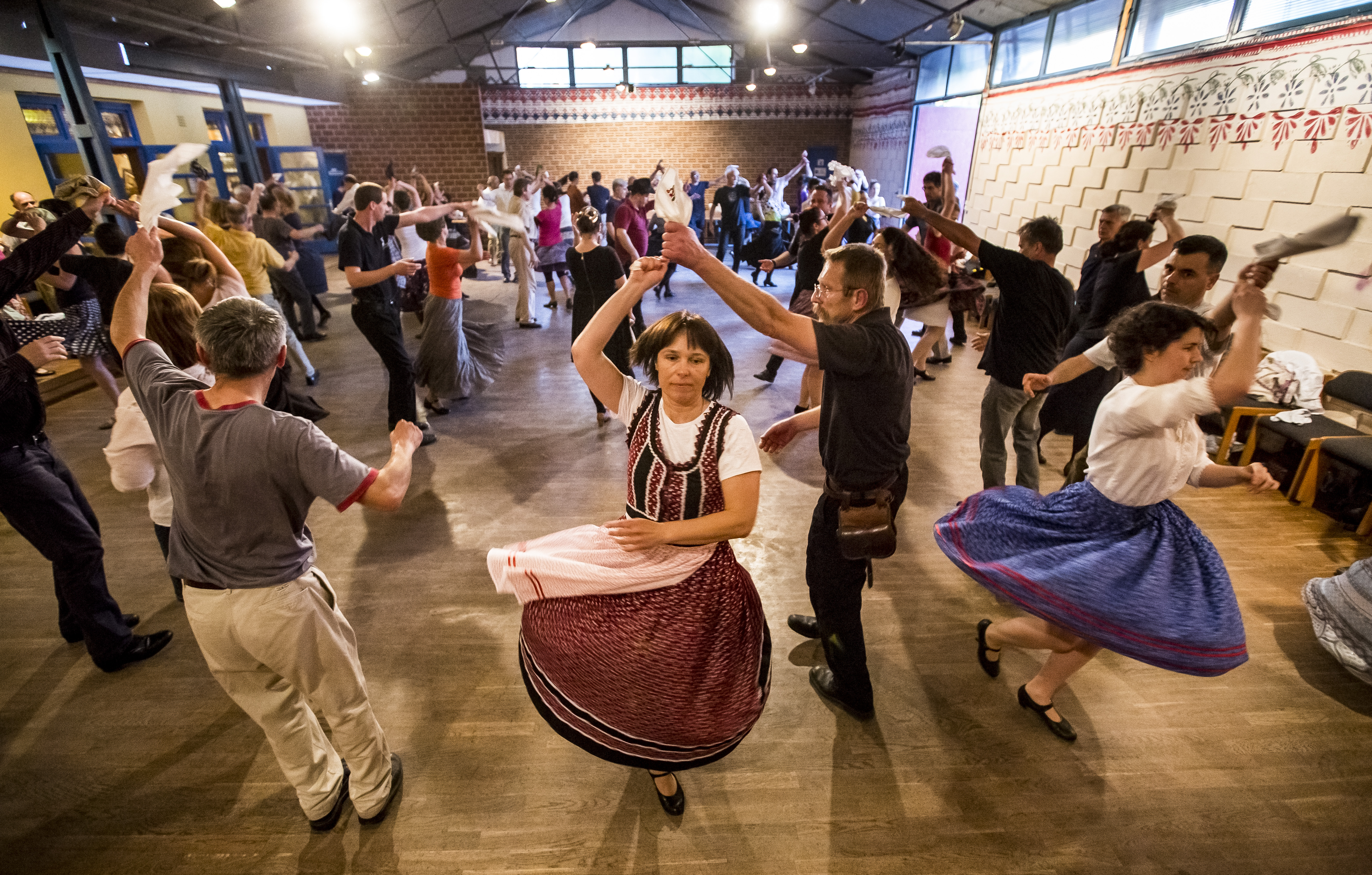Now setting up in Kraków, the Fonó folk-music club is a classic Budapest success story. Operating out of a modest building in deepest Buda since the mid-1990s, this live venue, studio and music publisher has inspired other branches to open up in Szeged, Mezőkövesd and... Poland. Fonó still strikes a fine balance between being authentic yet inclusive – as any visitor to its Wednesday dancehouse nights will testify.
Narrow Sztregova utca is not a street many would stroll down unless they lived at one of the residential blocks or worked at the factory complex here. About 100 metres down on the right-hand side as you approach from tram-lined Fehérvári út, a white-fronted building with exotic markings stands out from the grey and brown blocks. This is the Fonó club and its success is all the more remarkable considering its lack of passing trade or downtown location.

Nobody finds the Fonó by chance – the thousands who have crossed its threshold wish to catch a top-quality music act, and dance their feet off at the same time.
Over the course of its 23 years, the Fonó has been instrumental in instigating the careers of virtuoso violinist Félix Lajkó and Balkan brass star Boban Marković, who both played here early in their careers. Tellingly, when each played a concert in Budapest this winter, it was in front of thousands at the BOK Sportcsarnok (former SYMA). Just as World Music gained global acclaim, so these stars have outgrown the Fonó, whose modest concert hall still showcases prodigious ethnic talent from around the region.

The Fonó has also branched out. Apart from most Sundays and some Tuesdays, it manages to fill the calendar, week after week. Top names in jazz regularly perform here, not least Mihály Dresch and András Dés, who play a double-header on 23 March.
Recently, the Fonó filled with the North-African sounds of Tariqa and the Magyar Afrobeat of Mabon Dawud Republic, formed to honour Nigerian legend Fela Kuti.
But folk remains the Fonó’s stock in trade. On Wednesday nights, beginners and intermediates can arrive here at 6:30pm, learn the moves and the steps at the hands of an experienced teacher, and get moving once the band strikes up at 8pm.
The Fonó also recently hosted the launch of the English-friendly online platform for folk-dance tuition, ‘Your First Steps to Hungary’.

Look out, too, for the Budapest Folk Fest that takes place over five days in May, for which the Fonó is a leading venue.
Then there are free midweek music sessions, workshops, record promotions and all kinds of events and activities surrounding folk music, dance and culture.
Last week, in the heart of Kraków’s bar zone on ulica sw Tomasza, the Fonó launched its Polish branch, with local and Hungarian musicians bringing authentic folk sounds to augment the busy nightlife scene there. Just as Fonó has long imported talent to showcase it to Hungarian audiences, so it is now exporting Magyar know-how to one of the most flourishing markets in the region.
Fonó Club District XI. Sztregova utca 3 Tram 47 from Deák tér to Kalotaszeg utca




